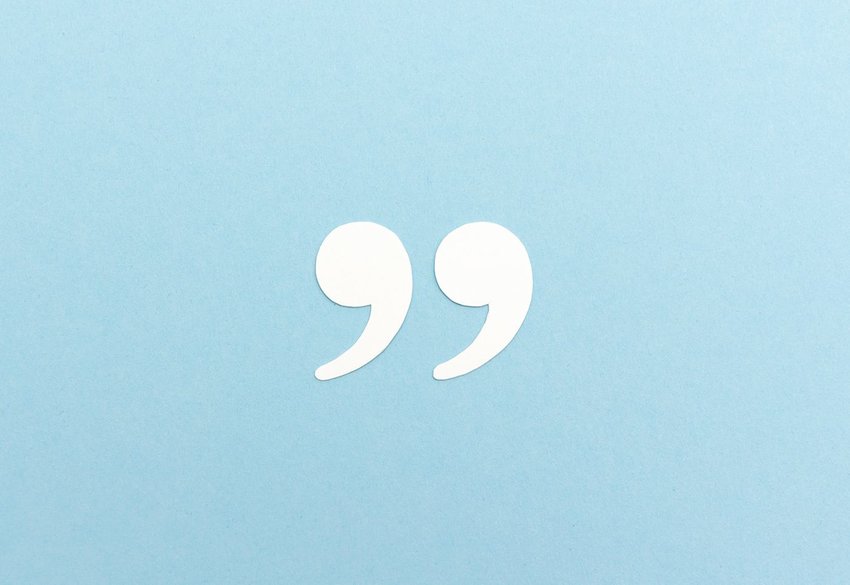How many times have you misplaced a comma, forgotten where to use a semicolon, or tried in vain to understand the difference between an em dash and an en dash? Don’t worry, it’s not just you. There are specific rules for punctuation, but when people aren’t confident in those rules, they tend to sprinkle in punctuation liberally — and sometimes incorrectly. Let’s look at some of the most common — and perhaps most egregious — punctuation blunders.
Quotation Marks
We blame the trend of “air quotes” for all of the unnecessary quotation marks in the world.
Quotation marks are used with direct quotes, titles, dialogue, nicknames, and, sometimes, to imply a hidden meaning. But some writers use quotation marks where they really don’t belong, usually to place emphasis on a “certain” word or phrase. (Those quotation marks are unnecessary.)
For instance, they're not needed on signage at a grocery store unless, for instance, they are directly quoting the latest positive review. No one is quoting that “bananas” are on sale. And if something is claimed as “sugar-free,” shoppers might wonder whether it’s really safe for a diabetic, or if it's a tasteless joke.
Apostrophes
Apostrophes are for possessives and contractions. And yet, how many times are they added for plurals or last names? It’s not “menu’s,” because the menu doesn’t own anything. If it’s a plural, it’s not necessary. Resist the urge to add an apostrophe.
Likewise, last names can be confusing when they end in “s.” But that doesn’t mean you’re keeping up with the Jones’s. They’re "Joneses" because the plural "-es" rule applies here. However, to say something belongs to Mr. Jones, that item is Mr. Jones’s.
Hyphens
Hyphens have a proper place, but still confuse many. The most common CORRECT use of hyphens is with compound modifiers. When two or more descriptive words (usually adjectives, not not necessarily) are modifying another word, you use a hyphen to turn those words into a compound modifier.
Examples: long-lost friend, blue-green tile, wide-open door
When there's an adverb in the modifiers ("very" and all adverbs with an "-ly" suffix) then the hyphen is NOT needed.
Examples: very last second, quickly running rabbit, softly spoken speech
Modifiers with three words should be hyphenated (black-and-white portrait), but more than three is up to the writer. Is it more confusing or cluttered with the hyphens?
Unlike compound modifiers, most compound words, such as redhead, do not use a hyphen, and tends to cause confusion.
Example: The redhead ran home to eat his favorite dinner.
Commas
Commas are a common nemesis. There are many correct usages for commas, but let’s go over a couple of the most prevalent mistakes.
1) Don’t use a comma after a conjunction in a compound sentence.
Incorrect: They asked him to go but, he didn’t want to join them.
Correct: They asked him to go, but he didn’t want to join them.
A compound sentence is joining two phrases that could function on their own as a complete sentence. The comma + conjunction (but, and, or) is replacing the period. You also don’t need to use a comma if the second phrase (dependent clause) is not a complete sentence on its own.
Example: He thought about going to the party but decided not to.
2) Do set off nonessential words or phrases by commas.
Incorrect: My favorite dress unfortunately shrank in the dryer.
Correct: My favorite dress, unfortunately, shrank in the dryer.
The commas are indicating the sentence would still make sense without the word "unfortunately."
How many of these mistakes have you spotted in the wild? Make sure to keep your red pen at the ready to correct these common punctuation mistakes.
Photo credit: Marie Maerz/ Shutterstock

